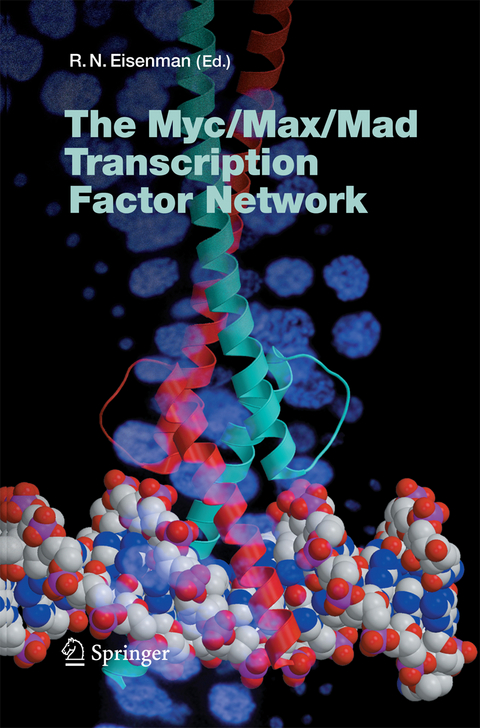
The Myc/Max/Mad Transcription Factor Network
Seiten
2014
Springer Berlin (Verlag)
978-3-642-42141-9 (ISBN)
Springer Berlin (Verlag)
978-3-642-42141-9 (ISBN)
Scientists often look askance at their colleagues whose research appears too strongly focused on a single gene or gene product. We are supposed to be interested in the "big picture" and excessive zeal in pursuit of a single pixel might seem to border on an obsession that is likely to yield only details. However as this volume of Current Topics in Microbiology and Immunology demonstrates, this is certainly not the case for myc. Intense study of this en- matic proto-oncogene over the last twenty years has only broadened our view of its functions and led to insights into mechanisms relating to transcriptional regulation as well as to cell growth, proliferation, differentiation, apoptosis and organismal development. The myc gene originally came to light as a retroviral oncogene (v-myc) associated with a wide range of acute neoplasms. It was later shown to be a virally transduced cellular gene (c-myc) which is a member of family of on- genes (c-myc,N-myc,L-myc). These family members are themselves subject to a bewildering assortment of genetic rearrangements associated with many different types of tumors derived from many different types of cells. These rearrangements (including chromosomal translocation, viral integration, and gene ampli?cation) act to uncouple expression of the myc family genes from their normal physiological regulators. The chapter by LIU and LEVENS - scribes the key pathways leading to regulation of myc expression, showing that such regulation occurs at several different levels and through multiple mechanisms.
Making Myc.- Transcriptional Activation by the Myc Oncoprotein.- Mechanisms of Transcriptional Repression by Myc.- The Mad Side of the Max Network: Antagonizing the Function of Myc and More.- Structural Aspects of Interactions Within the Myc/Max/Mad Network.- Myc Target Transcriptomes.- c-Myc, Genome Instability, and Tumorigenesis: The Devil Is in the Details.- Lessons Learned from Myc/Max/Mad Knockout Mice.- Myc/Max/Mad in Invertebrates: The Evolution of the Max Network.- The Mlx Network: Evidence for a Parallel Max-Like Transcriptional Network That Regulates Energy Metabolism.
| Erscheint lt. Verlag | 23.9.2014 |
|---|---|
| Reihe/Serie | Current Topics in Microbiology and Immunology |
| Zusatzinfo | VII, 282 p. |
| Verlagsort | Berlin |
| Sprache | englisch |
| Maße | 155 x 235 mm |
| Gewicht | 456 g |
| Themenwelt | Medizin / Pharmazie ► Medizinische Fachgebiete ► Mikrobiologie / Infektologie / Reisemedizin |
| Studium ► 2. Studienabschnitt (Klinik) ► Humangenetik | |
| Naturwissenschaften ► Biologie ► Mikrobiologie / Immunologie | |
| Schlagworte | Apoptosis • cellular transformation • growth • Invertebrates • Metabolism • nuclear proteins • Proliferation • Protein • proteins • signal transduction • transcription • transcriptional regulation |
| ISBN-10 | 3-642-42141-5 / 3642421415 |
| ISBN-13 | 978-3-642-42141-9 / 9783642421419 |
| Zustand | Neuware |
| Informationen gemäß Produktsicherheitsverordnung (GPSR) | |
| Haben Sie eine Frage zum Produkt? |
Mehr entdecken
aus dem Bereich
aus dem Bereich
Eine sehr persönliche Geschichte | Der New York Times-Bestseller
Buch | Softcover (2023)
Ullstein Taschenbuch Verlag
21,99 €
Die revolutionäre Medizin von morgen (Lifespan)
Buch | Softcover (2020)
DuMont Buchverlag
16,00 €


